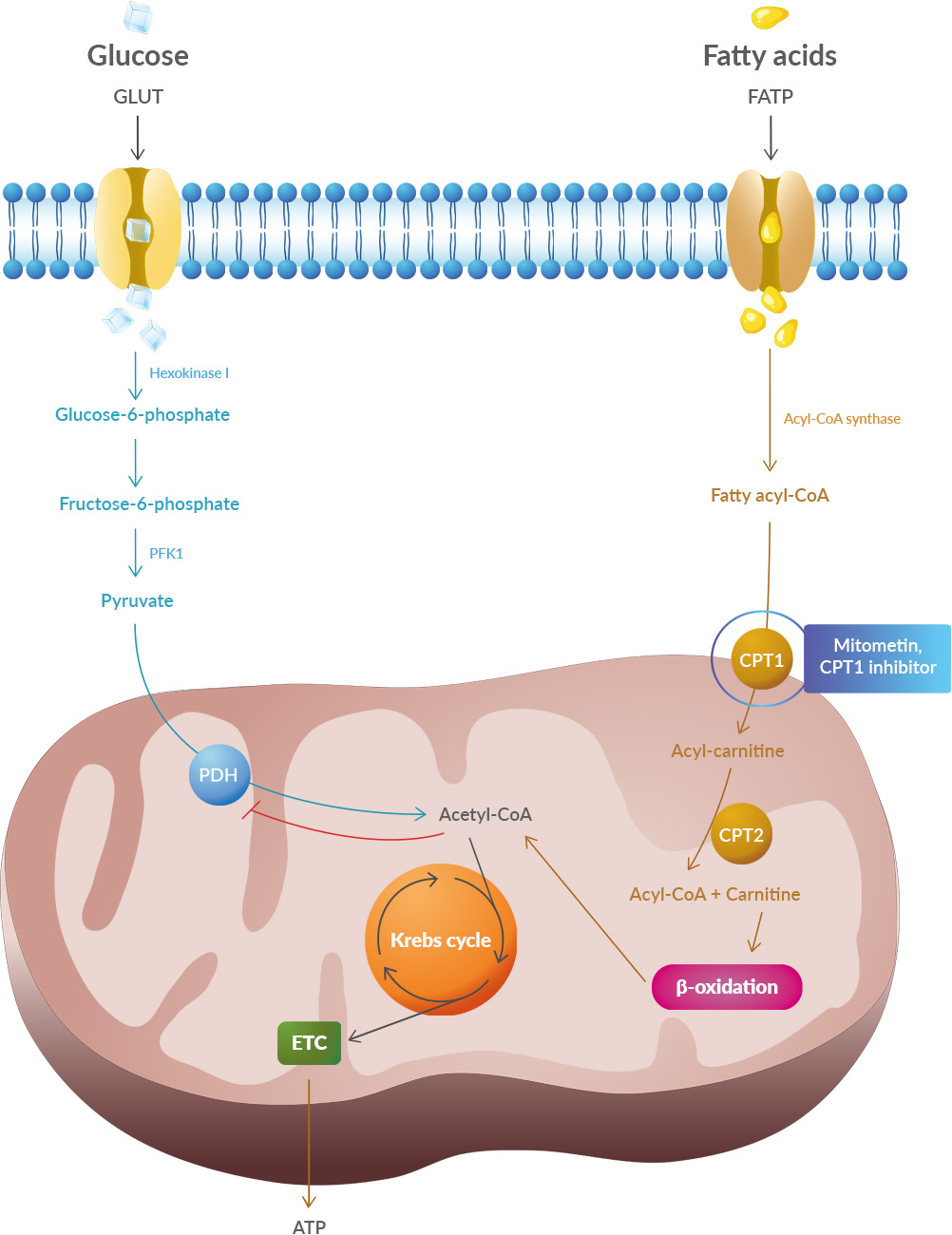Mitometin
About mitometin
Our drug candidate, Mitometin, is an orally administered, small molecule reversible inhibitor of carnitine palmitoyl transferase 1 (CPT1), a key enzyme in beta-oxidation as it facilitates transport of fatty acids across the mitochondrial membrane (Figure 3).
Figure 3.
Glucose enters the cell via GLUT and is phosphorylated to glucose-6-phosphate by HK1 followed by conversion to fructose-6- phosphate. Fructose-6-phosphate is converted to pyruvate by PFK1. In the mitochondria, PDH transforms pyruvate into acetyl-CoA. Acetyl-CoA is used in the Krebs cycle.
Fatty acids enter the cell via FATP, which possess acyl-CoA synthase activity and converts fatty acids into fatty acyl-CoA. CPT1 facilitates the transport across the outer mitochondrial membrane by converting fatty acyl-CoA to acyl-carnitine.
CPT2 reconverts acyl-carnitine into acyl-CoA and carnitine. Acyl-CoA is used in β-oxidation producing acetyl-CoA. Acetyl-CoA from glucose pathway and lipid pathway is used in the Krebs cycle. The energy produced in the Krebs cycle passes to the ETC, where it is converted into ATP.

Unmet medical need
Despite many decades of research, there is still no cure for amyotrophic lateral sclerosis (ALS), Parkinson’s disease and frontotemporal dementia (FTD). The high unmet medical need gives rise to re-evaluating the disease pathology in the process of identifying novel therapeutic targets.

